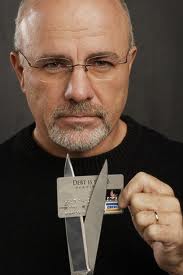 As our leaders battle over the budget crisis in Washington, Christian finance guru Dave Ramsey has started a movement called the Great Recovery that is described as “a grassroots movement spread by people who are tired of looking to Washington for answers” and who believe the solution is for “each of us [to take] a stand to return to God and grandma’s way of handling money.”
As our leaders battle over the budget crisis in Washington, Christian finance guru Dave Ramsey has started a movement called the Great Recovery that is described as “a grassroots movement spread by people who are tired of looking to Washington for answers” and who believe the solution is for “each of us [to take] a stand to return to God and grandma’s way of handling money.”
The movement’s populism is certainly attractive: let the world be free from debt and let it begin with me. But in his 50 minute promotional video, Ramsey goes beyond calling upon his audience to be good stewards of God’s wealth to making self-interest the definitive human virtue in a message that sounds more inspired by Ayn Rand than Jesus Christ.
A non-controversial Christian doctrine across the theological spectrum is divine providence. As we become Christians, we learn to view our achievements as gifts from God rather than proofs of our own merit. We learn gratitude, which becomes the basis for both responsible stewardship and charitable generosity. Christian conversion means being awakened from the delusion of self-reliance and recognizing our utter dependence on God. So when Ramsey states in his video that we need “God reliance and self-reliance, ” instead of “government reliance, ” he has created a fusion between two antithetical self-understandings.
This is further corroborated in his statement that “the normative way that God provides for me is through the work ethic and ingenuity that he pours into me. He uses me to provide for me.” By fusing divine providence and self-reliance in this way, providence becomes meaningless. If all that I achieve is derived in myself, why should I be grateful to God? It’s easier to confuse my own efforts with God’s grace when I forget that God doesn’t use just me to provide for me; he uses my parents, pastors, mentors, and teachers to instill me with the virtues I need. When I forget how dependent I am on God’s prevenient grace through others, I become an ungrateful, unmerciful person who presumes that others’ hardships reflect a lack of discipline. Furthermore, a gospel of self-reliance makes it easier to squander God’s wealth because I view it as property that I earned and can use as I please. Ramsey doesn’t seem to have a problem with this: “It’s your job to take care of you so you should act in your own best interests… This is not a bad thing… It’s Biblical.”
Two words that define Biblical economics for me do not appear anywhere in the Great Recovery promotional video: kingdom and mercy. Our call as Christians is not to be self-reliant, but to become a body that relies on God together. The gospel’s purpose is to establish the kingdom of God, a reality in which grateful people care for each other and inspire others to grateful stewardship through works of mercy, not by drawing thick boundaries of individual self-reliance. Perhaps Ramsey’s movement will accidentally build the kingdom of God and cultivate more generosity in American evangelical congregations, but only if people ignore his ideological commitment to individual responsibility and recognize that we are responsible for each other. It will certainly help our economy for individuals to stop living beyond their means, but programs like WIC and Medicaid should not be cut under the presumption that poor kids could pay for their own milk and health care if they just learned to save their money.
—-
Morgan Guyton is the associate pastor of Burke United Methodist Church in Burke, Virginia, and a Christian who continues to seek God’s liberation from the prison of self-justification Jesus died to help him overcome. Morgan’s blog “Mercy Not Sacrifice” is located at http://morganguyton.wordpress.com.
